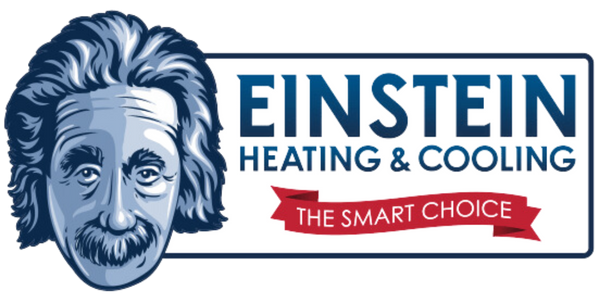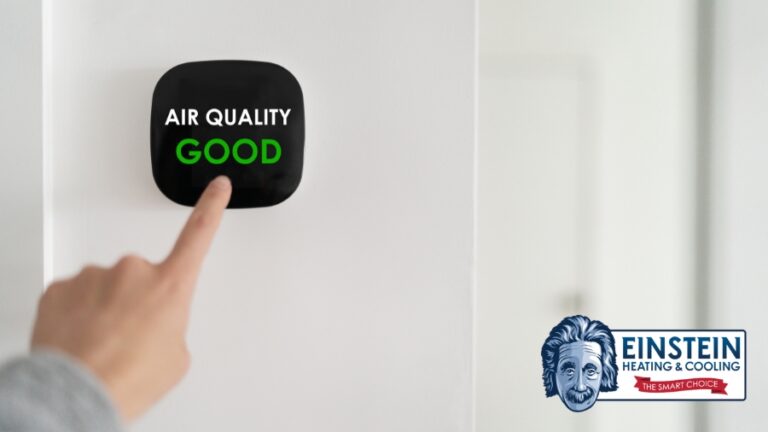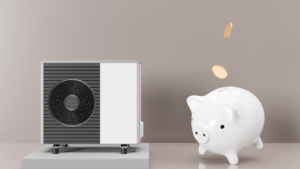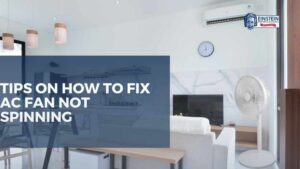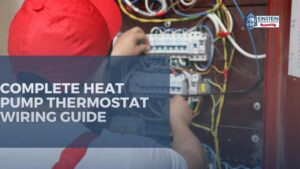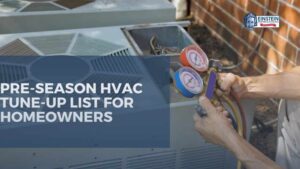Maintaining good indoor air quality (IAQ) is essential for maintaining the health and wellbeing of your family. Poor IAQ can lead to a range of health problems, including respiratory problems, cardiovascular disease, cancer, and cognitive impairment. In this blog, we will explore some of the steps that you can take to improve IAQ in your home and promote the health of your family.
1. Keep Your Home Clean
Keeping your home clean is essential for maintaining a good IAQ. Dust, dirt, and other particles can accumulate in your home, leading to poor IAQ. Regular cleaning can help remove these particles and improve IAQ. This includes vacuuming carpets and rugs, dusting surfaces, and cleaning your air conditioning and heating filters regularly.
Furthermore, a clean home promotes a healthier living environment. By regularly cleaning, you can minimize the presence of allergens, such as pet dander, pollen, and dust mites, which can trigger allergies and respiratory issues. It also reduces the risk of pest infestations, as pests are attracted to unclean and cluttered spaces.
Moreover, a clean home creates a pleasant and inviting atmosphere. It enhances the aesthetic appeal of your living space and promotes a sense of calm and relaxation. When your home is clean and organized, you can easily find your belongings and enjoy a clutter-free environment.
Cleaning your home also contributes to your overall well-being. The act of cleaning can be physically active, helping you burn calories and stay fit. Additionally, a clean and tidy home can positively impact your mental health, reducing stress and anxiety.
Keeping your home clean is crucial for maintaining good IAQ, promoting a healthier living environment, creating an inviting atmosphere, and enhancing your overall well-being. Make cleaning a regular part of your routine to enjoy the benefits of a clean and organized home.
2. Proper Ventilation
Proper ventilation is essential for maintaining good IAQ. Opening windows and doors can help bring in fresh air and remove stale air from inside. If you live in an area with high levels of outdoor air pollution, you may want to consider using a window filter or air purifier to filter out pollutants.
In addition to natural ventilation, mechanical ventilation systems can also be used to improve IAQ. These systems can be designed to bring in fresh air from outside and remove stale air from inside, while also filtering out pollutants.
Furthermore, proper ventilation plays a crucial role in temperature regulation. It allows for the exchange of warm and cool air, helping to maintain a comfortable indoor environment throughout the year. This can also have a positive impact on energy efficiency by reducing the need for excessive heating or cooling.
Proper ventilation is vital for maintaining good IAQ, controlling moisture levels, removing odors, and regulating indoor temperature. Implementing appropriate ventilation measures in your home can contribute to a healthier and more comfortable living environment. However, one must also remember the difference between ventilation and air purification as this can be difficult to understand and can lead to more expenses if one cannot differentiate.
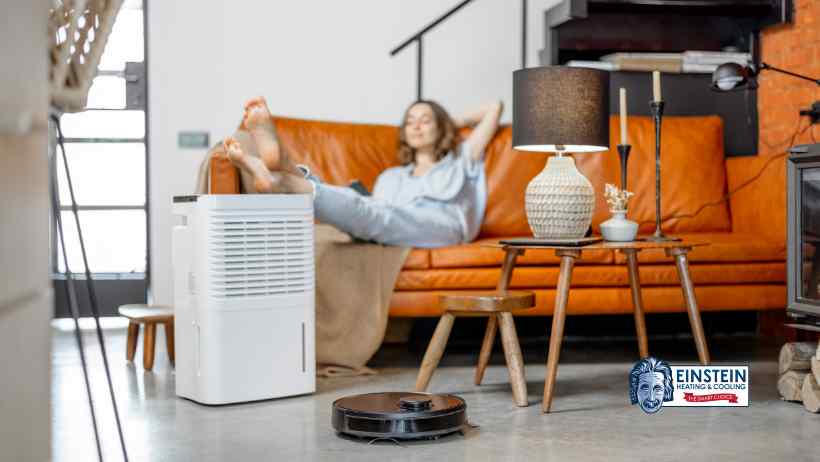
3. Use Air Purifiers
Air purifiers can be used to remove pollutants from the air. These systems can include filters, which trap particles such as dust and pollen, as well as activated carbon filters, which can remove volatile organic compounds (VOCs) and other chemicals. In addition to filters, air purification systems can also include UV-C lights, which can kill bacteria and viruses in the air, and ozone generators, which can break down pollutants in the air.
It is important to note that some air purification systems can generate ozone, which can be harmful to human health in high concentrations. Therefore, it is important to choose air purification systems that do not generate ozone, or to use these systems in a way that does not create harmful levels of ozone.
4. Maintain Your HVAC System
Your heating, ventilation, and air conditioning (HVAC) system plays a crucial role in maintaining a good IAQ. Proper maintenance of your HVAC system can help prevent the release of pollutants and improve IAQ. This includes cleaning your air conditioning and heating filters regularly, as well as having your system inspected and maintained by a professional on a regular basis.
Regular maintenance of your HVAC system ensures that it operates efficiently and effectively. A well-maintained system can help remove dust, dirt, and other particles from the air, preventing them from circulating and affecting IAQ.
Cleaning or replacing filters is a simple yet important maintenance task. Clogged filters can hinder airflow and allow pollutants to accumulate in your home. By keeping them clean, you can reduce the presence of allergens and improve IAQ.
Having your HVAC system professionally inspected and maintained by Einstein Heating and Cooling is also crucial. A qualified technician can identify and address any issues that may affect the performance of your system, such as leaks, duct blockages, or faulty components. Regular maintenance can extend the lifespan of your HVAC system, save energy, and prevent potential breakdowns.
Additionally, proper maintenance of your HVAC system can contribute to energy efficiency, resulting in lower utility bills and reduced environmental impact.
Maintaining your HVAC system through regular cleaning, filter replacement, and professional inspections is essential for improving IAQ, promoting energy efficiency, and ensuring the longevity of your system. Take proactive steps to keep your HVAC system in optimal condition for a healthier and more comfortable indoor environment.
5. Avoid Indoor Air Pollutants
There are many indoor air pollutants that can have a negative impact on IAQ. Some of the most common indoor air pollutants include tobacco smoke, mold, and chemicals from cleaning products and personal care products. Avoiding these pollutants can help improve IAQ and reduce the risk of health problems associated with poor IAQ.
If you smoke, consider quitting or smoking outside. If you have a mold problem in your home, it is important to address the problem and have it removed by a professional. Additionally, consider using natural or low-toxicity cleaning and personal care products to reduce the amount of chemicals in your home.
6. Monitor Your IAQ
Regular monitoring of your IAQ can help you identify potential problems before they become serious health hazards. This can include measuring levels of pollutants such as carbon monoxide, nitrogen dioxide, and volatile organic compounds, as well as measuring temperature and humidity levels. Regular monitoring can help identify areas where IAQ can be improved, and can help ensure that your family is not exposed to harmful levels of indoor air pollutants.
Monitoring your IAQ is crucial for maintaining a healthy and safe indoor environment. By regularly measuring pollutant levels, temperature, and humidity, you can identify any deviations from optimal conditions and take appropriate actions.
Measuring pollutants like carbon monoxide, nitrogen dioxide, and volatile organic compounds (VOCs) is essential for identifying potential health risks. Elevated levels of these pollutants can lead to respiratory problems, headaches, and other health issues. Timely detection allows you to address the sources of pollution and improve ventilation or filtration systems.
Monitoring temperature and humidity levels is important for maintaining comfort and preventing mold growth. High humidity can promote the growth of mold and mildew, while low humidity can cause dryness and respiratory irritation. Monitoring these levels helps you adjust your HVAC system or use humidifiers/dehumidifiers to maintain a balanced environment.
Regular IAQ monitoring empowers you to make informed decisions about ventilation, air filtration, and other measures to improve indoor air quality. It provides peace of mind, knowing that you are creating a safe and healthy living space for you and your family.
Conclusion
Improving indoor air quality in your home is crucial for maintaining the health and wellbeing of your family. There are several steps that can be taken to improve IAQ, including proper cleaning, ventilation, air purification, HVAC system maintenance, avoiding indoor air pollutants, and monitoring your IAQ.
By regularly cleaning your home and properly ventilating it, you can help remove pollutants from the air and bring in fresh air from outside. Air purifiers and HVAC system maintenance from Einstein Heating and Cooling can also help filter out pollutants and prevent their release into your home. Avoiding indoor air pollutants such as tobacco smoke and using low-toxicity cleaning and personal care products can also reduce the amount of pollutants in your home.
Regular monitoring of your IAQ can help you identify potential problems and ensure that your family is not exposed to harmful levels of indoor air pollutants. By taking these steps, you can help promote the health and wellbeing of your family by ensuring that the air they breathe is clean and healthy.
